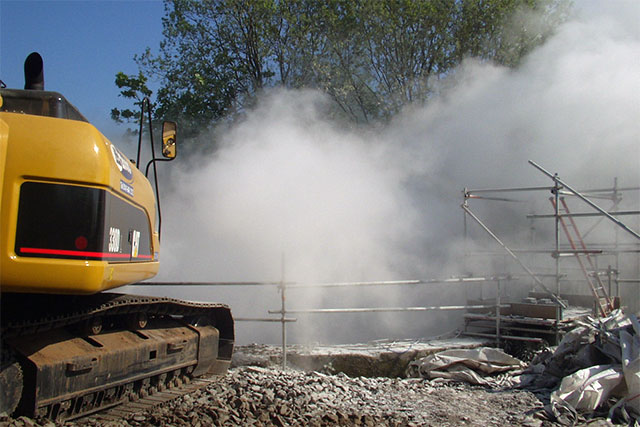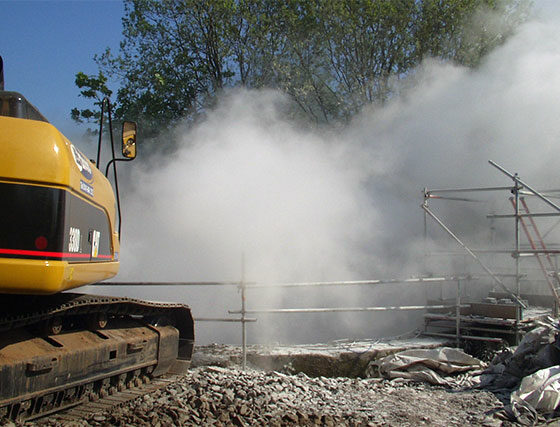Heating certain contaminants will reduce their concentrations. The most common use of thermal desorption is to treat hydrocarbon contamination (e.g. petrol and diesel).
Desorbed contaminants can often be recovered for re-use.

Thermal desorption explained
Contaminated materials are subjected to intense heat to remove all moisture and organic matter. Typically, a carrier gas or vacuum system transports the volatilized organics and water to a gas treatment system. Based on the operating temperature of the desorber, thermal desorption processes can be categorized into two groups: high temperature thermal desorption (HTTD) (320 to 560ºC or 600 to 1000ºF) and low temperature thermal desorption (LTTD) (90 to 320ºC or 200 to 600ºF).



